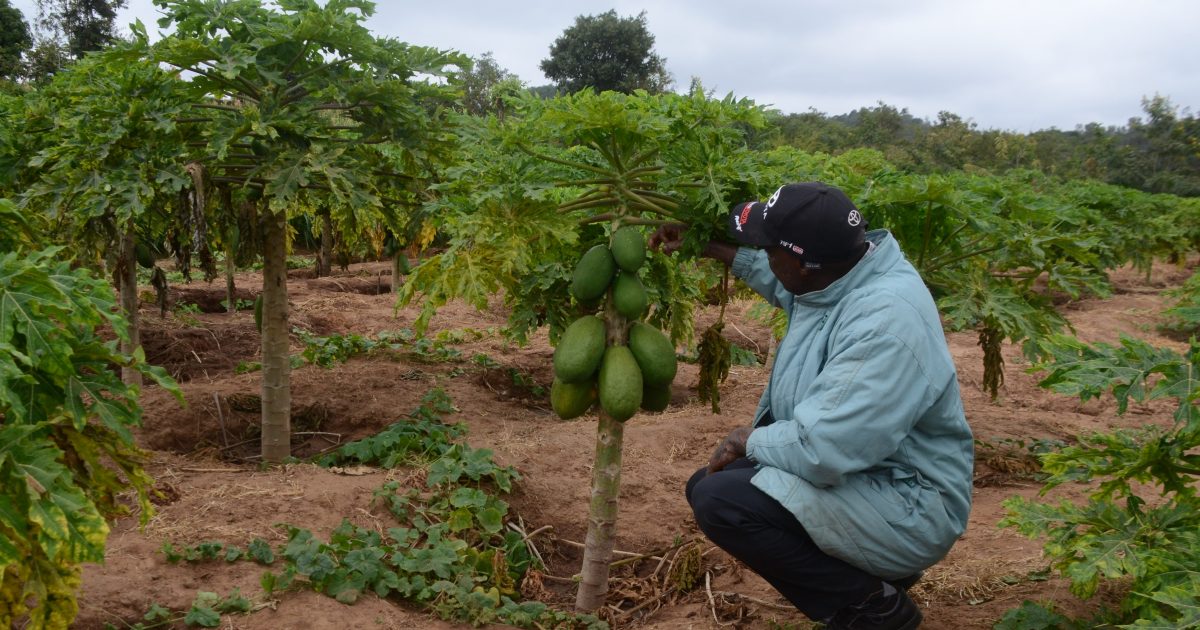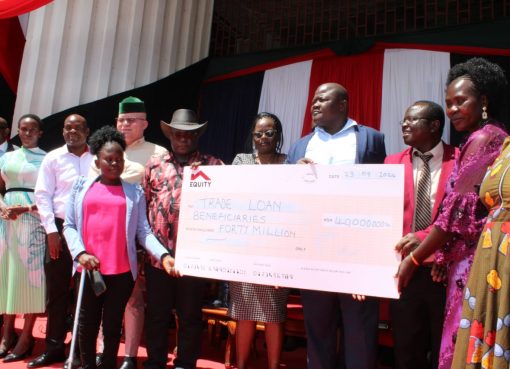A veterinary doctor’s relentless efforts in farming that spans over a decade are paying handsomely two years after he ventured into pawpaw farming.
Narrating his journey to KNA at his expansive farm in Mbiri, Murang’a County, Peter Mwangi Wamwea reminisced on the rewarding farming journey that has seen him settle on papaya in one portion of his 10-acre land.

“I started farming in 2011,” divulges Mwangi whose farm is divided into portions of oranges, thorn melons, plantains and local bananas.
“Bananas farming was doing well until Covid -19 struck the country and I was stuck with a huge produce without a market because of the lockdown and the global shrinking of the economy,” he observes.
Having suffered a big loss, Mwangi, who employs smart farming decided to venture into pawpaw farming in 2021. “I carried out market research on pawpaw (carica papaya) farming and realized there was a gap in the market, hence I had to do everything right in order to close the gap and reap better returns,” disclosed Mwangi.
He settled on the Calina 1PBP variety which is a highly productive dwarf plant that matures eight months after planting and stays active for up to four years. “In June 2021 and on a 2 acre- portion of my land, I dug planting holes of 60cm by 60cm, three meters apart and mixed the top soil with goat manure.
Papaya grows best in light well drained soils with a soil PH of 6.0 to 6.5 and the variety Mwangi chose requires constant supply of water and manure for optimum yields. He sources water from the nearby river Sagana and has installed underground water pumps serviced by diesel pumps that ensures that his farm has a constant water supply as rainfall is not sufficient.
Further, he sourced the papaya seedlings from Thika at Sh. 100 per plant and had 1500 holes dug at Sh. 30 each. “I was keen on getting the best field management including the best seeds in the market if my investment and passion in farming was to pay off. The whole startup cost me approximately Sh.500,000,” he reveals adding pawpaw plants are watered weekly.
In May, the father of three teenagers got his first harvest seven and a half months after planting.
“I harvest the fruits three times a week. The weekly harvests totals ranges between 300 and 400 kilograms which I sell at Sh. 70 per kilo,” observed Mwangi.
Mwangi has two permanent employees in his farm and often engages five casual laborers on a need basis.
Like with every lucrative venture, Mwangi attests that his pawpaw farming journey has had challenges when it comes to chemical usage and he has had to learn his way through trial and error.
“We want to give our customers a clean product so we have reduced pesticide usage and only stick to manure usage,” he says.
Another challenge is that, the part time vet doctor sources manure from as far as Narok which he says comes at a high transportation cost due to the stifled economy and inflated fuel prices.
His main market is Murang’a but he prospects to venture outside as he will harvest more than a ton per week once all the pawpaw plants mature. “Be patient and be on the ground always for better yields and promptly address pests and diseases before they cause much damage to the crop,” advises Mwangi as we concluded the interview.
By Florence Kinyua




